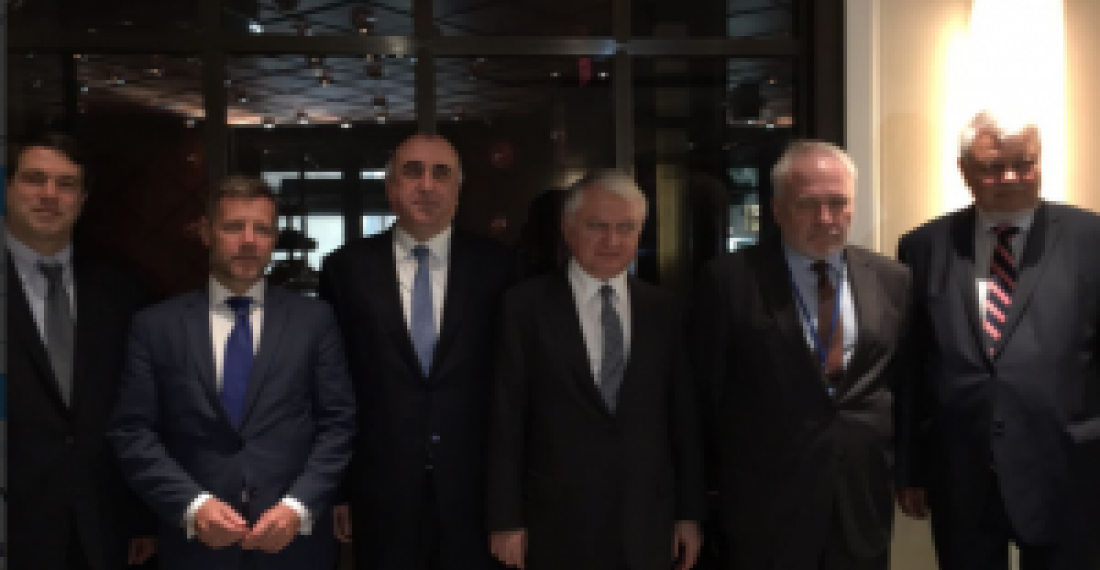The Foreign Ministers of Armenia and Azerbaijan have expressed their commitment to work with the co-Chairmen of the OSCE Minsk Group dealing with the Nagorno-Karabakh conflict to prepare for a successful summit between the presidents of their two countries in the near future.
A statement issued by the OSCE late on Saturday night (23 September), says that the three co-Chairmen, who represent France, Russia and the United States, met separately and then jointly with the Foreign Minister of Armenia, Edward Nalbandian, and the Foreign Minister of Azerbaijan, Elmar Mammadyarov, on 22-23 September on the margins of the UN General Assembly. They were joined by the Personal Representative of the OSCE Chairperson-in-Office.
The statement adds:
"The main aim of the consultations was to discuss the current situation in the conflict zone, to explore ways to reinvigorate the negotiation process, and to prepare for the upcoming summit between the Presidents of Armenia and Azerbaijan.
The Co-Chairs expect the summit meeting to contribute to enhancing confidence and political will among the parties to find compromise solutions to the remaining key settlement issues. The Ministers expressed their commitment to work with the Co-Chairs to prepare for a successful summit in the near future.
The Co-Chairs also met with OSCE Secretary General Thomas Greminger and UN Under-Secretary-General for Political Affairs Jeffrey Feltman to discuss the situation on the ground as well as the latest developments in the peace process and to inform them of preparations for the next high-level meetings.
The Co-Chairs intend to travel to the region at the beginning of October."
source: commonspace.eu with osce.org
photo: The Co-Chairmen of the OSCE Minsk Group (Igor Popov of the Russian Federation, Stephane Visconti of France, and Andrew Schofer of the United States of America) met separately and then jointly with the Foreign Minister of Armenia, Edward Nalbandian, and the Foreign Minister of Azerbaijan, Elmar Mammadyarov, on 22-23 September on the margins of the UN General Assembly. The Co-Chairs were joined by the Personal Representative of the OSCE Chairperson-in-Office, Andrzej Kasprzyk. (Picture courtesy of the twitter feed of Hikmet Hajiev, spokesperson of the Azerbaijan Foreign Minister).






